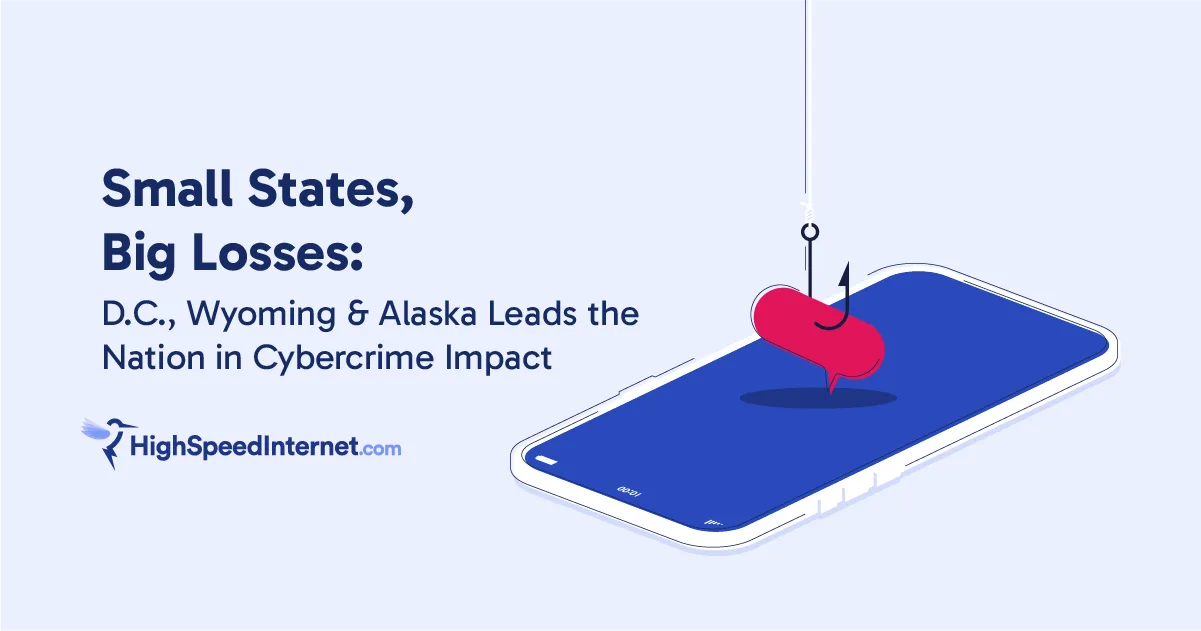Annual Internet Service Provider Review 2024: Methodology
Apr 5, 2024 | Share
Annual Review 2024, Data and Research, Featured

Judging Internet Service Providers (ISP) is not a simple task. A variety of technology types, substantial regional variability, and the dozens of terms, policy, and feature variables attached to every internet plan make comparisons difficult. What one ISP considers important and the best-in-class often does not match what others are touting–and all of those likely don’t sync up with what consumers ask for. Choosing the right internet plan has become irrationally complicated.
That specific challenge is exactly why we endeavor to be as meticulous as possible with nearly 30 million data points and customer sentiment as our ultimate guide.
Internet service exists as a privatized utility for people in the US, and we think it’s those people who should decide what’s really important about that service.
The Annual Internet Service Provider Review uses our ISP datasets to take an accurate and comprehensive snapshot of the internet landscape. Using a mix of customer feedback and thoughtful analysis from our team of internet experts, we then select the appropriate elements to build scores in five key areas: Best Overall, Best Value, Fastest ISP, Most Reliable, and Best Customer Service. Our primary goal of this analysis is to provide valuable provider insights in sync with the perspectives and needs of internet customers.
About our data
The annual review rests on three proprietary datasets:
- Performance data from the HighSpeedInternet.com speed test
- Data from our annual customer satisfaction survey
- HighSpeedInternet.com’s internet plan index
HighSpeedInternet.com speed test & performance data
At HighSpeedInternet.com, we have our own speed test (available on our site and via Android and iOS mobile apps) which collects millions of ISP performance data points every year. The speed test data points with the most influence on our scoring include download speed, upload speed, latency, and jitter. The 2024 Annual Review incorporates over 28 million ISP performance data points.
Annual Customer Satisfaction Survey
Every year, HighSpeedInternet.com surveys thousands of internet customers to see how providers stack up. Our latest survey includes responses from over 7,000 internet customers from across the nation. We ask customers to rate their provider’s speeds, pricing, reliability, customer service, and overall quality. On top of ratings, customers also answer more specific questions, such as how often they experience outages and whether or not their provider has raised their rates.
Aside from provider performance, we inquire how customers feel about internet service in general and what factors have the most impact on their experience. These insights help us create balanced scores that are faithful to real-world customer needs and wants. For example, our methodology places the highest priority on pricing and value because that’s what our data says matters most to customers. Likewise, the next most influential factor is internet performance, because, again, our data suggests that’s the next most important factor to customers after price. These priorities make the annual review a genuinely customer-centric analysis.
Internet Plan Index
At HighSpeedInternet.com, it’s our job to know providers inside and out. We maintain a comprehensive database of hundreds of internet plans from every major internet provider in the U.S. We track every detail of every plan, including prices, speeds, data caps, terms, and policy. The index is essential for comparing the combined value of provider offerings.
Score anatomy
Fastest ISP
When customers think of internet speed, the overwhelming majority think of download speed: the performance metric most indicative of technical service quality. That’s why we use download speed—and only download speed—to determine our speed scores. Our fastest ISP award goes to the provider with the fastest average download speed, period.
Score anatomy: 100% average download speed
What about upload speed, latency, and jitter?
We 100% believe in the value of these measurements. Symmetrical speeds, low latency, and low jitter are all substantially rewarded in other areas of our methodology.
Best Value
Our value methodology looks for the providers that offer the best deals with a heavy preference for plans that make the most sense for the average household. We did this because it was an obvious cue from our research and customer survey findings. Money matters and when inflation is on the rise, millions of households look for budget-conscious solutions to everyday expenses, including their internet bill.
We start by gauging plan value with a cost vs. bandwidth ratio. Plans with advertised speeds below 940Mbps carry the most weight as we consider these plans to have the most impact. For plans with speeds of 940Mbps and above, score influence starts to drop dramatically. Gigabit plans and above are not only considerably beyond the needs of the vast majority, but their prices often don’t fit with households on any kind of budget.
In an effort to further favor affordability, we apply a flat reward to any ISP with an internet plan for $50 or less and for any ISP that provides unlimited data with 50% or more of their plans.
Score anatomy (approx.): 66% value ratio, 34% affordability & policy
Most Reliable
We can’t overstate the importance of internet reliability as internet service is no longer a luxury, but a necessity. While reliable internet certainly means fewer outages, it also means service that you can count on to operate smoothly. That’s why we choose our most reliable internet provider based on customer reliability ratings and key network health metrics, like latency and jitter which respond to efficient network management and consistent maintenance.
Finally, because certain technologies provide more consistent and reliable service, we factor in internet tech type as the final component of each reliability score.
Score Anatomy (approx.): 57% customer reliability rating, 33% network health metrics, 10% technology type
Best Customer Service
Our yearly survey allows us to keep an eye on which providers go above and beyond to provide quality customer interactions. Years of survey data tell us that customer service is one of the most important ingredients for happy Internet customers. Our research shows that high overall satisfaction and good customer service go hand in hand. ISPs with the best customer service receive both the highest customer service ratings and also the highest overall ratings. That’s why we use a mix of overall customer satisfaction and customer service ratings to gauge which providers perform best in this regard.
Score anatomy: 50% customer service rating, 50% overall satisfaction rating
Best overall
Because internet service quality is multi-dimensional, our methodology considers every aspect of a provider, including its plan value, real-world performance, plan features, and the satisfaction level of its customers. Then we use survey data to determine which factors mean the most for you, the customer. Finally, our team of internet experts takes all that data, analysis, and customer feedback to create a balanced and meaningful snapshot of a provider’s overall quality.
While our overall score uses a combination of the methodology above, it also accounts for much more. We incorporate elements that, while important, do have a firm foothold in our more focused analysis. For example, service availability comes into question, as do meaningful features like symmetrical speeds and convenient account management.
Score anatomy (approx.): 40% pricing & value, 38% speed & performance, 17% customer feedback, 5% availability
Author - Austin Aguirre
Austin worked as a broadband technician installing and troubleshooting countless home internet networks for some of the largest ISPs in the U.S. He became a freelance writer in 2020 specializing in software guides. After graduating with a BS in technical communication from Arizona State University, he joined the team at HighSpeedInternet.com where he focuses on home network improvement and troubleshooting.
Editor - Aaron Gates




